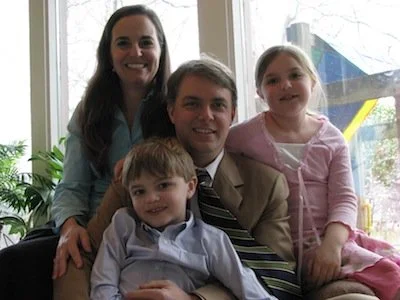From the Third World to the Corporate Office
My workplace has changed in the last eight years from a very hot, open-air room of my house in the Dominican Republic to an old repurposed furniture warehouse that became the first LEED Platinum office in North Carolina. I transitioned from working with poor teenagers in both countries on the island of Hispaniola (Haiti and the Dominican Republic) to running a foundation focused on brownfield remediation as a means of promoting environmental sustainability and funding poverty alleviation. Both experiences, along with help from colleagues and strong writers such as Matthew and Nancy Sleeth, have defined sustainability for me.
Sustainability is a word taking on depth in our workplaces. It is an idea that assigns responsibility to us for the resources we use, it defines what true profitability is, and it provides solutions that result in health and abundance. It is an idea that reveals the character of Jesus, the creator of a wonderful system capable of maintaining unfathomable biological diversity and productivity.
My journey into an environmentally conscious workplace has led me to see that sustainability is a bigger concept than I initially considered it to be. Certainly it includes being environmentally responsible, as most people understand this idea. In our offices we do things that establish good habits. We make recycling easy by placing recycling bins in strategic places. We carefully choose the materials we purchase, from pens and paper to the kind of drinking cups we will use. We also pay attention to what food we allow to be served to our guests. We keep our printing to a minimum and we conscientiously choose the best materials we know of when producing annual reports or Christmas cards.
We also make more complex, practical decisions. Our company has a staff member evaluate our environmental responsibilities and we attributed these as costs in our business. For example, we calculate the annual carbon footprint of our team traveling to work and we donate offsets for this expense. Several years ago the founders of our company relocated our offices to downtown Raleigh, NC. Repurposing property saves the green spaces in our communities and can economically revitalize local areas. Our offices now have a large checklist of advantageous features including waterless urinals, a plethora of recycled materials that were used structurally and decoratively in the design, energy efficient lighting and a careful workplace floorplan to increase worker efficiency and enjoyment in the office.
Finally, I have been surprised to find a similarity in my past tropical workplace and my new one in Raleigh. All humans need vision, and we thrive when there is a depth of purpose in what we do. Mentoring teenagers who are our future leaders and remediating contaminated land both equally contribute to a true, sustained global existence. Organizations that strive for more than perpetuating their own existence cultivate a positive influence and a spirit of giving back.
Scott Steele is the Executive Director of the Cherokee Gives Back Foundation, a non-profit organization focused on transforming real estate liabilities into assets to advance global responsiveness to poverty and the environment. Prior to taking this position he and his wife Jennifer lived and worked for eleven years in the Dominican Republic and Haiti for the ministry of Young Life.


